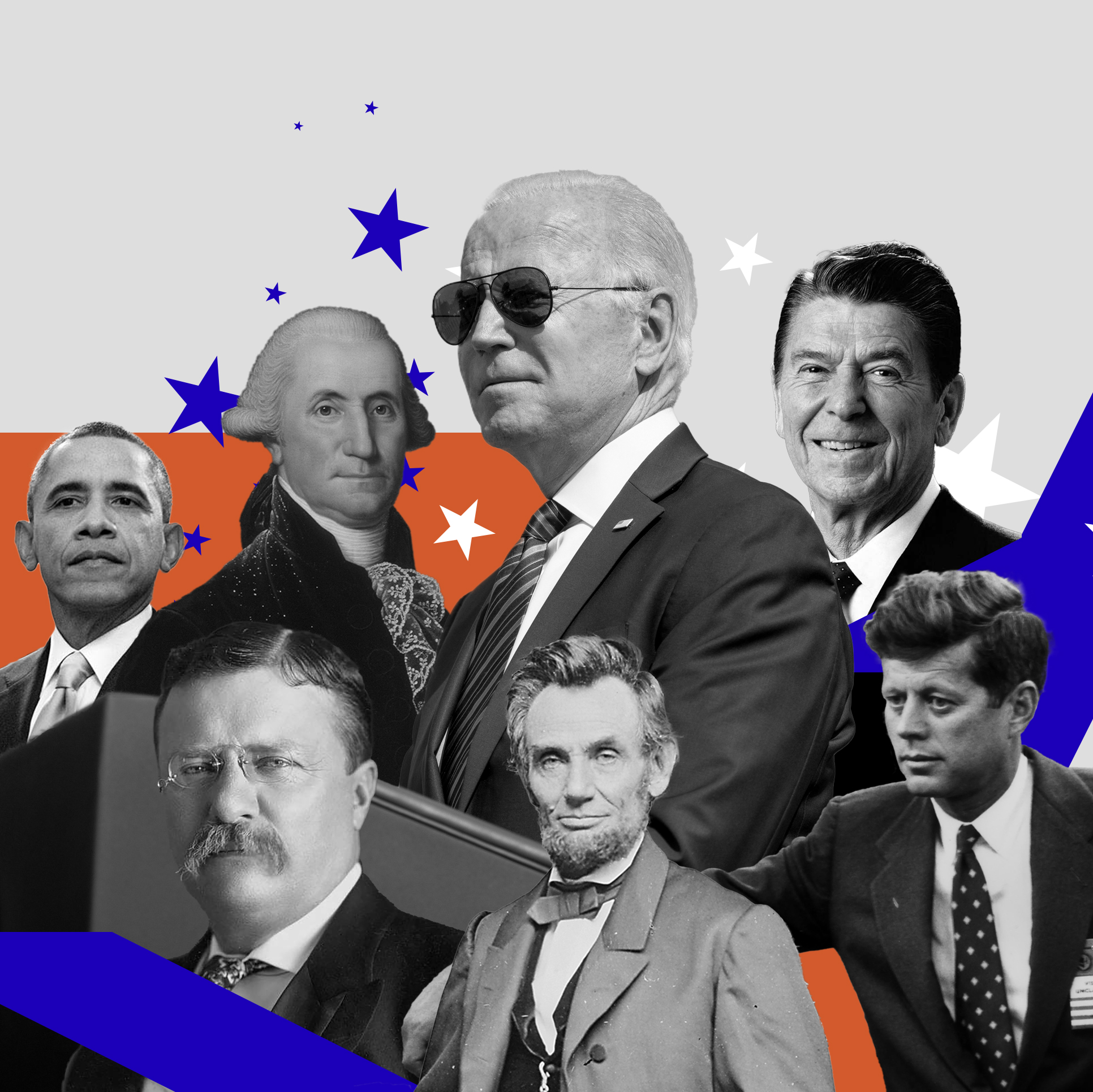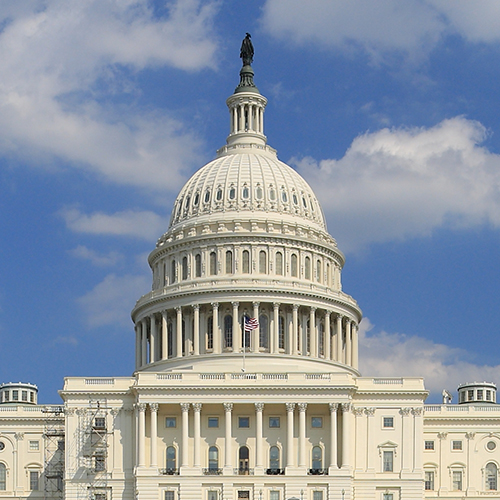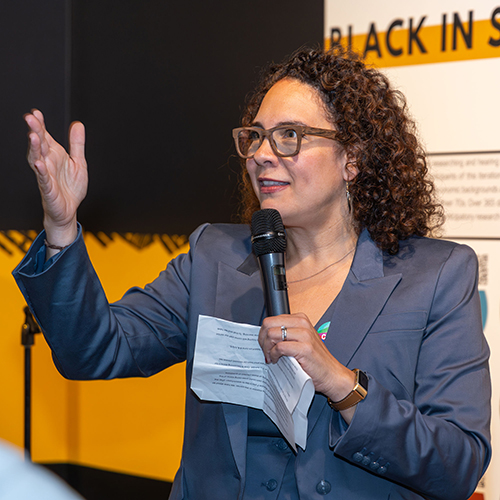On a wall in the Department of Political Science hangs a faded photograph, dated 1955. The young men and women in the photograph, joined by then-Governor Al Rosellini and key members of the Washington State Legislature, represent the first group of UW students to serve as interns through the department’s Legislative Internship Program.
Fast forward nearly 50 years. Although some specifics have changed, the basic concept of the program remains the same.
“It’s an opportunity for students to work behind the scenes in Olympia during the legislative session,” says David J. Olson, professor of political science and academic coordinator of the program. “It brings home in a first-hand manner what the world of politics is really about.”
The UW sends 12 to 18 student interns to Olympia each winter quarter. The students are selected through a competitive process, then matched to senators or representatives on the basis of interest and temperment. Those assigned to the Senate report to one senator; those assigned to the House of Representatives work in a pool, typically reporting to two or three representatives.
During their ten weeks in Olympia, the interns are paid by the state legislature and earn 15 UW credits. Sound like an easy ride? Consider this: in addition to working long days in a legislator’s office, the students are required to keep a daily journal, complete several papers—including a 30-page research paper, and participate in a lengthy mock debate and hearing. “They work their tails off,” says Olson. “They are very busy.”
The work begins before they join a legislator’s office. Judi Best and Joan Elgee, intern coordinators for the Senate and House respectively, organize a three-day orientation for all interns (including those from other colleges and universities) that serves as a crash course in the legislative process.
“We try to cover everything we think will be important for them to know,” says Elgee, “from an overview of the committee process, to an introduction to writing constituent letters, to how to deal with state agencies.” Throughout the legislative session, additional seminars are offered on topics ranging from writing to budget to media.
Once they begin working, the interns hit the ground running. “We make sure they get a taste of the reality of the day-to-day requirements of being an elected official or legislative staff member,” says Senator Jeri Costa of Everett, who has had interns for the past eight years, first in the House and now in the Senate. Interns spend much of their time drafting responses to constituent correspondence, researching issues, and troubleshooting for constituents. “In my office, they also learn a great deal about how to track legislation and ensure stakeholder involvement in the legislative process,” says Costa.
“It is a wonderful learning experience.” Laura O’Connell, a UW senior who interned in the House, found responding to constituent letters particularly challenging. “There were many interesting questions from people who wanted to know if there are laws covering their concerns,” she says. “Often their letter would require a great deal of research before we could find the answer.”
What impressed O’Connell most during the internship? The legislators’ dedication to both their work and their constituents. Their level of dedication was “even higher than I had thought,” says O’Connell.
That perspective pleases Senator Costa. “I want our interns to learn how hard their public servants really work for them,” Costa says. “I hope that they will have a positive view of public service and that they will want to participate in some level of government in their future.”
Alex Bolton, a UW senior, is already aiming for a life in politics. He has been on the Board of Directors for the ASUW (Associated Students of the University of Washington) and ran for ASUW president last year. When the presidency didn’t pan out, he was encouraged by friends to participate in the internship program.

Assigned to Senator Pat Hale of Richland, he was most surprised by the positive role of lobbyists in the political process. “Media portray lobbyists as evil,” he says, “but I saw that they are a very important information source, helping legislators see how bills will affect people. They are simply advocates for groups within society.”
Bolton’s revelation about lobbyists is shared by many interns, says Olson. They also frequently express surprise at the partisan nature of the legislature. “When they arrive, there is a high level of naiveté that legislators should rise above partisan politics,” says Olson. “But they soon realize that 90 percent of legislators’ behavior is based on party. It blows them away. That has remained consistent for interns through the years.”
Olson has a particularly good sense of the students’ discovery process because he reads through their journals on a regular basis. “They hate that I force them to keep a journal,” Olson admits, “but five years later, they say it was the greatest thing I did for them. They are in a very unusual and coveted position as legislative interns, and most don’t realize— particularly in the beginning —how important the experience is going to be. The journal is a way for them to chronicle the experience. They come to treasure it.”
Interns also remember the mock hearing and floor debate as a highlight. Organized by Best and Elgee, the mock hearing is an opportunity for interns to research, and then debate, two actual bills. One of this year’s bills would have made it illegal to sell—to minors —video games that depict violence toward police officers.
“The interns pick roles and then lobby the bills, debate them, and pass amendments,” says Best. “They use the real hearing rooms, which makes it special. And the Senate staff supports them. Occasionally members come down during the floor debate and give them tips on things to think about.”
Bolton, who took on the role of a committee chair in one of the mock debates, agrees that it was a memorable part of the internship. But then again, he says, every part of the internship was memorable.
“I really liked it all,” he says. “It’s clear to me that state politics is what I want to do, because that’s where you can make change most effectively. The internship was one of the best things I’ve done at the UW.
“Actually,” he adds with a laugh, “it makes me sort of glad I lost for ASUW president, so I could have the time to do this.”
More Stories

Is This Presidential Campaign Different?
UW History professor Margaret O'Mara provides historical context for this moment in US presidential politics.

Making Sense of This Political Moment
To navigate this momentous election season, Arts & Sciences faculty suggest 10 books about the US political landscape.

Interrupting Privilege Starts with Listening
Personal stories are integral to Interrupting Privilege, a UW program that leans into difficult intergenerational discussions about race and privilege.